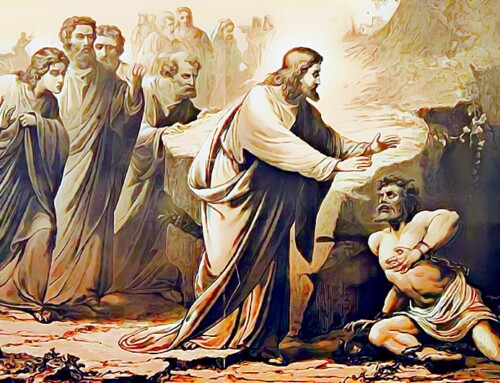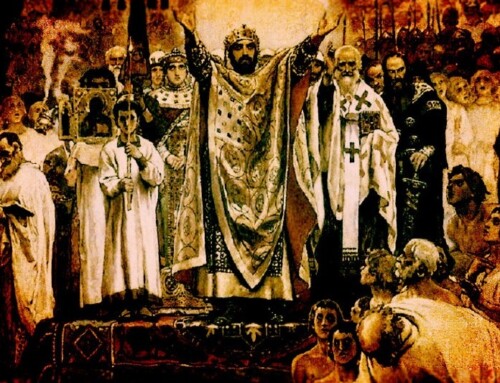“If people were always kind and obedient to those who are cruel and unjust; the wicked people would have it all their own way: they would never feel afraid, and so they would never alter, but would grow worse and worse.” – Charlotte Brontë, “Jane Eyre”
Out of the hundreds of films I saw as a teenager, one of the most influential is James Cameron’s “Aliens.” Released in 1986, “Aliens” was the long-awaited sequel to the Ridley Scott directed “Alien” from 1979. Too young to see the R-rated “Alien” during its initial theatrical release, I had since watched the film countless times on VHS video. It was oftentimes a visually stunning movie, but also genuinely horrifying and rather traumatizing – especially for a young boy. Like another film I only saw because of the home-video revolution, “The Exorcist,” six years before “Alien,” also played with the idea that something evil is hidden within the human body or inside the subconscious storehouse of the memory. For rather unexplained reasons, I found this particular scenario incredibly frightening.
In the history of science-fiction film-making, “Aliens” was remarkable in that the protagonist (Ellen Ripley) was a very strong-willed female character. Men often dominated the genre, from Flash Gordon to Buck Rogers; except for Princess Lea, even the contemporaneous “Star Wars” saga was ruled by men and centered on Luke Skywalker’s journey to manhood as guided by other men – namely Obi-Wan Kenobi. But “Aliens” should be viewed within the male-centered narrative of the hero’s return. Thousands of years ago, this theme is implicit within Homer’s “Odyssey” as well as the Book of Genesis and the story of Moses. Personally, the part of Moses’ life that I always found the most intriguing was his encounter with the burning bush on Mount Sinai. When told by God to return to Egypt and deliver the people of Israel out of bondage, in the beginning, Moses essentially refuses. He asks the question: “Who am I that I should go to Pharao, and should bring forth the children of Israel out of Egypt?” In other words, find someone else; someone more qualified; I am not the right man for this job. But who could blame Moses for his reluctance? As an infant, he was nearly murdered, then set upon the river Nile in a basket. Although he was raised in privilege and power, he was betrayed by everyone around him and then cast out of the only home he ever knew. Why go back?
“I don’t believe this. You guys throw me to the wolves, and now you want me to go back out there? Forget it.” – Ellen Ripley
At the beginning of “Aliens,” Ellen Ripley is faced with a similar dilemma. The only survivor of a commercial starship (the Nostromo), she has been adrift in an escape shuttle for 57 years. Upon her discovery and return to Earth, she is subjected to an integration by executives of her former employer – the megalithic Weyland-Yutani Corporation: a sort of conglomerate amalgamation of a massive federal bureaucracy, big-tech, and the military industrial complex. They immediately dismiss her testimony concerning the brutal massacre of her fellow crewmates by an unknown alien creature and the eventual destruction of their vessel.
During her recuperation at a hospital space-station, and following her post-recovery release, she is repeatedly tormented by nightmares. She wakes up screaming and clutching her chest, haunted by the most graphic scene from the past – when the gestating alien bursts forth from the stomach of an unsuspecting crewman. Then, a representative (Burke) of the Weyland Corporation contacts Ripley and offers her a job as an advisor on a mission back to the planet LV-426: the moon where the alien possibly originated. He says: “You wouldn’t be going in with the troops. I can guarantee your safety.” But she refuses. As an incentive, he offers Ripley reinstatement as a flight officer. Punished for disobedience to her corporate overlords, Ripley can only find work as dock loader. The nightmares continue. In a moment of desperation, she contacts Burke and says: “Just tell me one thing, Burke. You’re going out there to destroy them, right? Not to study, not to bring back, but to wipe them out.” She agrees to join the mission.
Ripley is a space-age “Jane Eyre;” a survivor of abuse who finds herself back in the company of her abusers.
As the ship carrying Ripley, Burke, and the Colonial Marines approaches LV-426, she discovers that there is an android (curiously named Bishop) on board. In the previous film, the android (which is indistinguishable from a human being) was programed to deceive the crew – and deliver the alien back to the Corporation for testing as a possible bio-weapon; Ripley and her crewmates were expendable. A strikingly similar situation involved the homicidal HAL 9000 computer in “2001: A Space Odyssey.” Like many abuse survivors, Ripley is quick-tempered and irritable, predisposed to lash-out at those she perceives as abusive, enabling, or complicit; even if they are not. For this reason, she warns Bishop to stay away from her. A defense mechanism, she is slow to trust and prone towards suspicion. I get it.
Thirty-five years later, the film still resonates with me. I remember how spectacularly written and acted was the character of Private Vasquez; how heroic and flawed are the male supporting roles from the chivalric Corporal Hicks to the blundering Officer Gorman and the cowardly Private Hudson – both of whom, by the end of the movie, completely redeem themselves. But I see “Aliens” as an almost near perfect metaphor for those Catholics who were abused by the institutional Church and then choose to return; or are pressured into staying or going back. Like Ripley, this decision calls for the abused, not so much to confront the past, but to sometimes willingly cooperate with and work within an organization which continues to conceal its past abusive behavior and long-standing corruption, and refuses to reform itself or take any sort of substantial responsibility. All the while, they guarantee your safety.
In “Aliens,” in order to regain her former profession, Ripley is willing to somewhat represent, at least for a while, the concerns of the Weyland Corporation – most evidently, when she warns the rather clueless Gorman that his lack of knowledge concerning the Weyland colony on LV-426 could result in catastrophic damage to the facilities. Later, when when she has to re-witness the needless slaughtering of the majority of the Marines, Ripley would gladly burn the whole thing down; prompting the famous line: “I say we take off and nuke the entire site from orbit.”
But, at one time, she volunteered to work within the corporate system. Her motives were two-fold: to restore her livelihood and position, and to selflessly help others; at the beginning of the film, during the crucial meeting with the Weyland executives, Ripley learns that several families were sent to LV-426 as colonists. Her response – in a script that is filled with expletives, is the only time she utters the name of Our Lord.
Once on LV-426, Ripley sees the aftereffects of the colonists being massacred by the aliens, and following Burke’s treachery (his plan to have her serve as a host of an alien) she drops any pretense of working within the corporate sphere. But the process of this realization happens somewhat gradually. In a movie overflowing with great lines, this is one of the most powerful: “These people are dead, Burke! Don’t you have any idea what you’ve done here?! Well, I’m gonna make sure that they nail you right to the wall for this! You’re not gonna sleaze your way out of this one! Right to the wall!” Here, she still holds onto the belief that justice can be merited within a corrupt system. Following their confrontation, along with the lone survivor of the colony, a little girl nicknamed Newt, Burke locks Ripley in a room with the parasitoid form of the alien species. This betrayal from someone she trusted is something many survivors of abuse have similarly experienced in the Catholic Church. It marks the end of her belief in justice within an unjust institution.
“Aliens” is also related to another subgenre of literary and cinematic fiction, that of the revenge fantasy – primarily comprising the storyline of a child (usually the son) seeking retribution for the brutal murder of the father. Diverse examples include “Hamlet” and “True Grit.” But Ripley occupies a space in some weird universe whereby her anger is directed, not at the destroyer of her father, or mother, but at the parental figure itself. On the doomed Nostromo – the master computer was called “Mother.” Programmed by the Corporation with a singular objective, to return the alien species to Earth, with a sickeningly sweet but monotone female voice, the “Mother” computer is both seemingly attentive and caring, but also highly manipulative. Jordan Peterson describes the real-life psychology of such a person as “the Terrible Mother.” On LV-426, Ripley finds a “queen” alien that endlessly lays eggs and through telepathy is able to control a vast army of fully-formed alien drones. The most grotesque aspects of “the Terrible Mother” has taken on its physical form. She is an anti-mother, a sick revisioning of the “Our Lady of the Sign” icon.
Throughout the film, despite being retraumatized and revictimized, Ripley is remarkably able to maintain an incredibly high level of composure and self-control; until she confronts the alien “mother.” Little is known about Ripley’s background, though she seems to lack any close familial bonds and is childless; albeit in a deleted scene from “Aliens,” its revealed that she left a daughter back on Earth. For this reason, I believe she immediately bonds with the orphaned Newt – a fellow abuse victim who has had to learn how to survive on her own. She risks her life for this child that she barely knows, but there is almost always an immediate kinship between fellow survivors. In the Church, I too have experienced this. Survivors tend to form their own familial bonds. But Ripley only loses control once in the film, when her anger takes over and she becomes near-psychotic; loaded down with every sort of weapon provided by the Colonial Marines, Ripley unleashes all of it onto the alien “queen.” Her anger almost results in her own self-destruction, until the pleading of Newt snaps her back to reality.
A history of dealing with abusive authority figures, undergoing trauma, and subsequently attempting to exist within the same institutional structure which perpetuated the abuse and protected the abusers can cause what Sigmund Freud referred to as “repetition compulsion.” A psychological condition in which a person repeats an event or places oneself in circumstances in which the event is likely to reoccur. This may explain why a number of abuse survivors are often revictimized. In the Catholic Church, this remains a frequent occurrence. In a sense, Ripley stops this cycle of abuse. Instead of constantly being reimplanted with rage, she finally moves outside the system, protects herself, rescues those that she can, and literally blasts herself away. The unfortunate trend in the subsequent less successful and less profitable sequels in the “Alien” franchise, the repetition compulsion is all too evident as Ripley is forced to relive the trauma over and over again. For some diehard fans of the first two films – there is a fantastical hope that somewhere in the cosmos, Ripley and Newt are safe and sound.
After watching the film, I have sometimes wondered: Why did the Weyland Corporation want her to go back to LV-426? They didn’t need her. She told them everything she knew. And they were confident in the skills and firepower of the Colonial Marines. But the presence of Ripley lends credibility to the endeavor; although they publicly dismissed her story – they know she is telling the truth. Therefore, the cooperation of a survivor somehow negates their culpability. In the Catholic Church, there is a persistent false meme: If the victim of priest sex abuse can stay in the Catholic Church, that substantiates the claim that Roman Catholicism in the one true Church.
Ripley stands against the Weyland Corporation. And what they represent; a sick and perverse form of motherhood that was symbolized in the first “Alien” film by the female-voiced computer that values the interests of the Corporation over everything else – even human life. In “Aliens,” this perversion of motherhood is brought to a barbarous apogee in the alien “queen” whose sole concern is the perpetuation of her species. A more sophisticated version of this principle is found in the Borg-collective from the “Star Trek” universe. In the end, Ripley finally realizes that coopering with a corrupt institution is both morally and psychologically impossible because it requires one to overlook the abuse of others as well as resubmitting yourself for further repeated traumatization. An institution which literally allowed monsters to run wild is impossible to restore from the inside.
At the end of film, there is a poignant scene between Ripley and Newt. After nuking the alien-infested site on LV-426, and presumably destroying all of the creatures, Ripley and Newt must go into “hypersleep” for the long trip back to Earth. Newt asks: “Are we gonna sleep all the way home?” Ripley says: “All the way home.” Newt further inquiries: “Can I dream?” Ripley responds: “Yes, honey. I think we both can.” In Arthur C. Clarke’s 1982 novel “2010: Odyssey Two,” before he is permanently shut-down, the newly rehabilitated HAL 9000 asks the question: “Will I dream?” Here, there is an odd unification of the abused and the enabler; they find commonality in their mutual suffering. Although the programming in those who protected and preserved the institution wasn’t faulty – its goals were achieved. In some, the actuality of maintaining such software is intolerable; in the Church, I’ve seen priests whose programming has malfunctioned and they suffer unbearably; some stay and try to initiate reforms from within; others, who have tried that, simply walk away. And, while some lay Catholics, especially on the conservative side, appear well-intentioned when they urge survivors to stay, what they are essentially offering is LV-426. The promise of eternal glory provides little comfort when you are affixed to a wall and waiting to explode.
Since returning to the Catholic Church, I have gone through the full spectrum. At first, like Ripley, due to past abuse, I was unwilling to go back to the site of my former torment. But they held something over me – I had to go back, or somehow, I wouldn’t be complete. Like the Colonial Marines, those who sometimes accompanied me on my journey were braggadocios and overly-confident, but they were good people; like Hicks, Gorman, and Vasquez, they were self-sacrificing, and in the end – willing to pay the ultimate price. But in the Catholic Church, I feel like I have been battling the same monsters for over two decades. All they need is another human host. The Church provides them. I’ve watched it happen, and been powerless to stop the carnage. Like Ripley, in my favorite scene from the film, her meeting with the Weyland executives, she stands-up, her hands full of Corporation documents, throws the papers in the air, and says:
“…if one of those things gets down here then that will be all! Then all this – this bullshit that you think is so important, you can just kiss all that goodbye!”
I feel like I have said almost the same thing at least 100 times in front of various bishops. And I get the same quizzical and dismayed look back that Ripley received. But a monster remains in the belly of the Church. It has burst forth multiple times, and proceeds to devour those around it. I suppose that Ripley got a certain satisfaction in nuking the alien hive on LV-426, and blasting the stowaway “queen” out of the airlock, but for most victims of the Catholic Church, there is no such commiseration; no resolution. Like a bad set of movie sequels, of which the later “Alien” franchise was not immune, we are locked in a hideous cycle of abuse.
I understand anger, and I sympathize with those who are overcome with rage. Yet, revenge and violence only deepen the pain. Some people are driven to such ends because they believe there are no other alternatives. Tragically, in most victims, the pain is not directed outward, but inward. In the Catholic Church, I repeatedly felt as if I were constantly being re-possessed. I am not naive. I realize that this is a fallen world and evil is everywhere. But I had been living on LV-426, and like Newt, hiding in a series of concealed air-ducts. Eventually there was no place left to go. Leaving was the only option. Although I am no longer surrounded by monsters, healing has been a difficult process. I am still haunted by the memories of those I left behind. But like Ripley and Newt, I can dream; at least for myself, the nightmare is over.






I dont know what closure is being given to victims of the clergy. If there is none, the abuse gets owed by the Church. Then yes, the victims of the Church. Ive seen a post by Moira, on a catholic saintess who was shown by Jesus in a vision on the fallen clergy who chose hell who were more grotesque looking than the devils themselves. I am saddened and I feel your pain, Joseph. I wish I could say something to take away your pain. But St. Joseph, he can save you. Mother Mary. Through them, Jesus can heal you.
[…] Joseph sent me his most recent article, and I recommend it for those of you who do care to better understand. It’s long, so I […]
Joseph, thank you for your honest writing. You are an inspiration to many. I made a journey from Catholicism to Orthodoxy last year. It was difficult, and in some ways still is, but I really do feel this similar peace about things.
Joseph,
It may not make any difference to you, but please know that I am praying for you. I have kept up with you for a couple of years now and your suffering and, may I say, heroic efforts to do what you can to right a grievous, hideous, monstrous wrong have made an indelible impression. I pray that somehow, you will find your way to a truly orthodox and faithful community (for me, that had to be the Society of St. Pius X). The true teachings of the Church are unmistakably clear, and it is a scandal beyond description that you are continuing to endure what you are having to endure. May our Blessed Mother and your patron namesake console you, protect you, heal you, and bless you.
Ever since I read the film Alien (the original) was really about abortion, I have a hard time thinking of it in any other context. It has been so long since I’ve seen the sequel though, I am not sure how that analysis might or might not fit in the continuation of the story. I hope, for your sake, you are right, but, unfortunately, the monsters of our world are not limited to one planet or one church. No, I’m not about to try to convince you to come back because Orthodoxy isn’t perfect… what a boring argument. But, I know from my own life, the scars of abuse can break open when we least expect it, even by those we trust and who did not understand. I would wish your nightmare is over, but I fear putting all your nightmares in the Catholic Church might leave you vulnerable. The monsters are everywhere, the Catholic Church included, and I don’t blame you for not wanting to put up with her tolerance or even encouragement of them… it is difficult and very painful. We are not just a community, we are Christ’s Body, beaten and bloodied, and only He can end the nightmare. Praying for you.
Seems like you have been yearning to leave the Church for the truer Church for a while and who can blame you whatsoever, these men are not fixing anything, and men rarely do…so fallen are men that the Church never really fixes anything. We fight the same problems that led to the reformation of ccatholics bailing for often understandable reasons of fed-upness. Wherever you would go, dear Joseph, i sigh, there will be men and thus corruption and failure to fix, cowardliness to repair or call out. The Church without men is perfectly beautiful, with men it is horrid so many ways and placed. I got nowhere to go as the phrase goes..I ignore all the very bad men from top to bottom, ignore the lukewarm vomit throughout, and thank Jesus for His Perfect church given to us for me to hopefully find His Mercy despite them. We need the sacrements that these men provide. Seek them from the good ones as best you can tell, and ask God to forgive us as we forgive others trespasses striving for holiness ourselves. Only this Church can help us truly fully. Get away from and ignore the very many jerks…like Lot, not like his wife or even his daughters.
You’re in the right, true Church of Christ. So are the other sinners “and worse”! Try to keep fighting or ignoring them, (loving as Christ calls us to truly love, not the tolerating evil stuff). They wont leave…either. He wants their souls too, and gives them opportunities to be saved until death does part.
Christ is Risen!
Indeed He is Risen!
For an anecdotal human interest side of Orthodoxy, read Metropolitan Tikhon ‘s book Everyday Saints.
Joseph, you left the Catholic Church? 🙁
I didn’t leave the Church; the Church left me at the side of the road.
“And it chanced, that a certain priest went down the same way: and seeing him, passed by.” (Luke 10:31)